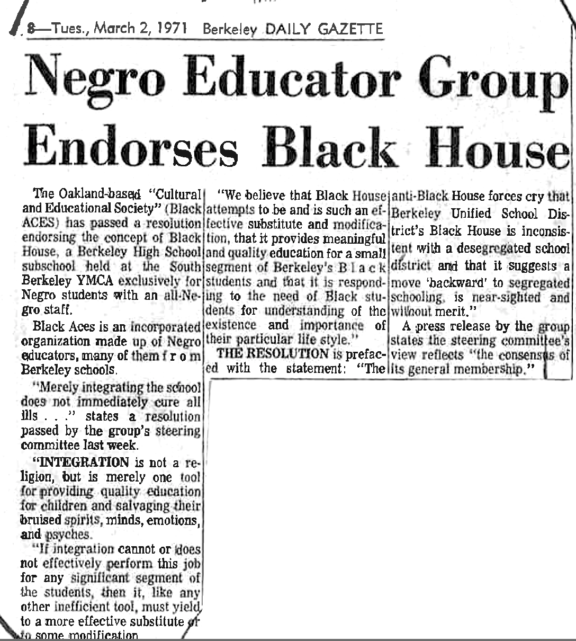Almost from its inception, Black House was caught in an existential battle to defend its core mission, assailed both by white liberals who had helped sponsor desegregation in Berkeley and, outside Berkeley, by conservatives who did not wish to sponsor Civil Rights initiatives in the sphere of education.
An Oakland-based group of black educators—Black Aces—passed a resolution in support of Black House and articulated the rationale behind its existence. The resolution noted that integration alone was not a strategy for bringing out the potential of black students in the Berkeley public school system. New strategies had to be cultivated, the educators wrote, to address “the need of Black students for understanding of the existence and importance of their particular life style.”
